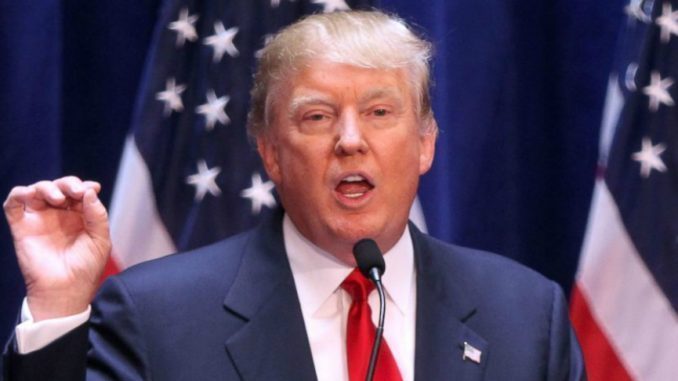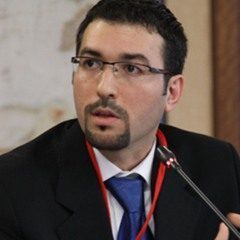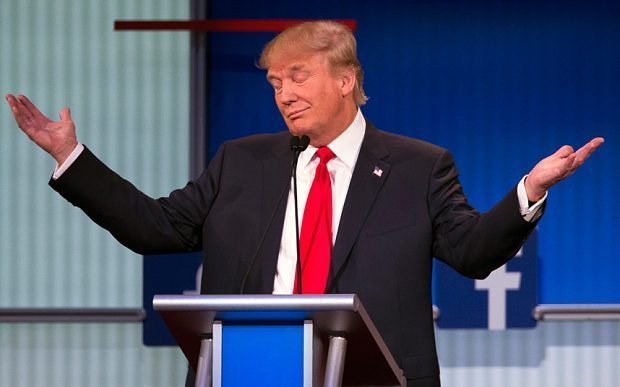
After the new US president, Donald Trump, has signed an executive order that will limit immigration and refugees from some Muslim-majority countries, the consequences have immediately started to appear as tens of travelers were held detained in airports around the world.
Trump’s order bans Syrian refugees, claiming they are “detrimental” to the interests of the United States, and suspends the refugee admissions program for all countries for 120 days. It will also suspend the issue of visas to nationals of countries where the US believes they do not provide enough information on an applicant to decide whether or not they are a security or public safety threat.
Those countries are Iran, Iraq, Libya, Somalia, Sudan, Syria, and Yemen.
“I’m establishing new vetting measures to keep radical Islamic terrorists out of the United States of America. We don’t want them here. We want to ensure that we are not admitting into our country the very threats our soldiers are fighting overseas,” he said in a speech at the Pentagon.
Trump’s executive action fulfills his campaign promise to bar Syrian refugees and partially fulfills his vow to temporarily ban Muslims from the U.S. — a promise he later amended to apply only to people from certain Muslim-majority countries.
The order means that about 500,000 green card holders who reside in the U.S. but are originally from one of the seven countries will need a waiver to return to their homes, White House officials said Saturday. It also applies to people from the seven countries who hold dual citizenship and are not U.S. citizens. This means that people of both French and Yemeni nationality, for example, would be denied entry.
During his run for president, Trump repeatedly suggested that Syrian refugees and Muslim immigrants are likely terrorists.
He used the hate speech and the fear of terrorism threat to attack the majority of the US’s little-educated population, promising them with a country free of “foreigners and terrorists” if they elected him, in a way the follow’s Hitler’s strategy that led to the creation of Nazi party and him being the sole leader of Germany.
Six held in Cairo
The State Department is working to implement the executive order’s changes immediately, spokesman Mark Toner said in a statement. He said the agency will announce changes affecting travelers as soon as possible.
Five Iraqi passengers and one Yemeni were barred from boarding an EgyptAir flight from Cairo to New York on Saturday following Trump’s ban.
The six passengers, bound for John F. Kennedy International Airport, were prevented from boarding EgyptAir Flight 985 at Cairo airport despite holding valid immigration visas, the sources said.
The five Iraqis had arrived in transit from Erbil and were being held at the airport until they could be re-boarded on flights back to Iraq, whereas the Yemeni passenger had arrived at the airport from elsewhere in Cairo, they added.
A UN refugee agency spokesman said it was not yet known whether the six travelers had been granted visas earlier under the US refugee program.
Fifty held in Dallas
Up to 50 people were reportedly detained at DFW Airport Saturday under Trump’s new ban.
Alia Salem, with The Council on American-Islamic Relations, said that about 50 people, including green card holders, were being held by U.S. Customs and Border Protection officials at DFW because they are from countries listed in Trump’s executive order.
Salem said about 50 people were initially being detained in a holding area, but 40 were removed — it’s not clear where they went — leaving nine people in the one holding area.
Federal officials would not confirm the number of people being detained and DFW Airport officials declined to comment.
Among those being held are the parents of Osama Alolabi, 20, of Syria. He’s a junior at Southern Methodist University in Dallas and his parents came here to visit, but were denied entry.
Aloabi said they’ve been staying in Saudi Arabia but have Syrian passports and were traveling on B1-B2 Visitor Visas, which are generally used for business, tourism or visiting.
“I’m really terrified about my family,” said Aloabi, who last saw his parents in August. “That’s all I can think about, is their safety.”
People supporting those being detained held signs that read “Release our Family!” and “Deport Trump!!” in the international area of Terminal D at Dallas-Fort Worth Airport, where family members were angry, confused and frustrated with the treatment of their loved ones.
Banned from taking flights
Trump’s crackdown was reverberating across the world as airlines hurried to block residents from the banned countries from traveling to the U.S. while others who were already in flight when the order was signed were detained upon arriving at airports, including John F. Kennedy in New York and DFW, both of which are huge international gateways.
In Iran, the foreign ministry suggested the country would limit issuing visas to American tourists in retaliation.
Two of the first people blocked from entering the United States were Iraqis with links to the U.S. military, according to The Associated Press.
Hameed Khalid Darweesh and Haider Sameer Abdulkhaleq Alshawi were detained by immigration officials after landing at New York’s JFK Airport Friday night. Darweesh had worked as an interpreter for the U.S. Army when it invaded Iraq in 2003. Later he worked as a contract engineer. He was allowed into the U.S. Saturday afternoon, hours after his attorney petitioned a federal court to let the two men go, according to AP.
In their court filing, his lawyers said Alshawai’s wife had worked for a U.S. security contractor in Iraq. Members of her family had been killed by insurgents because of their association with the U.S. military.
CAIR officials said they would challenge the constitutionality of Trump’s order.
It is unclear how many people would be immediately impacted by the non-refugee travel ban. According to the statistics maintained by the Homeland Security Department, about 17,000 students from the seven designated countries were allowed into the U.S. for the 2015-2016 school year. In 2015 more than 86,000 people from those countries arrived in the U.S. on other, non-immigrant visas and more than 52,000 others became legal permanent residents.
Church World Service, one of the organizations that handles refugee resettlement, had been planning to welcome 212 refugees next week, 164 of them joining family members already in the United States, according to a spokeswoman. Those 212 refugees are no longer expected to arrive.
Last year the U.S. resettled 85,000 people displaced by war, political oppression, hunger and religious prejudice, including more than 12,000 Syrians. Before leaving office President Barack Obama announced that the U.S. would accept 110,000 refugees in the coming year, but Trump’s order cut that by more than half to 50,000.
No refugees were in the air when the travel ban was signed Friday, but about 350 people were in transit in Nairobi, Kenya, and were now stuck there, said Melanie Nezer, vice president of policy and advocacy for HIAS, a refugee resettlement aid agency. She said several hundred more people who were booked on U.S.-bound flights in the next week were now stranded around the globe.
“This in effect could be a permanent ban,” she said. “Many of these people may never be able to come.”



